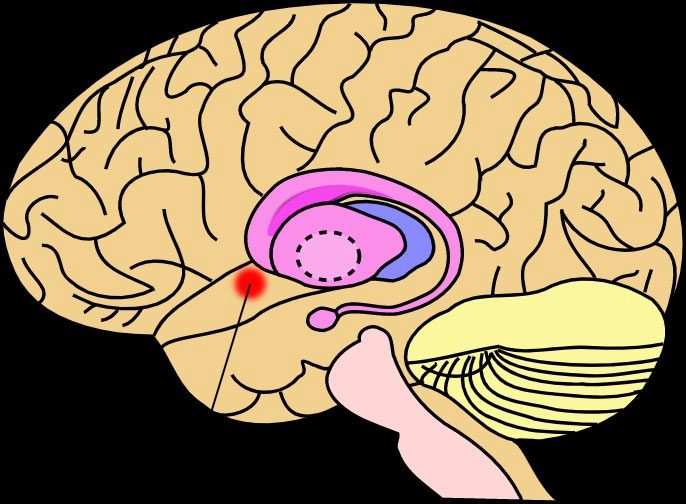This year’s World Cup season has come to a complete end. For many, especially men, the past days have been filled with excitement, vibrancy, and unexpected moments during thrilling matches.
For some, perhaps their wives, girlfriends, or colleagues, they can now breathe a sigh of relief because… “It’s finally over.”
They have their reasons, much like a question that has been brewing for years: “What’s so great about football?”
In their eyes, football is just a bunch of men in shorts and jerseys crowding around a field, with endless back-and-forth passes, and hearing the term “offside” without knowing why it matters.
They cannot comprehend why so many people are willing to spend their days and nights glued to the TV or their phones. Yet, they can experience a myriad of emotions from surprise and excitement to joy throughout the long stretches of 90 or 120 minutes, even if no goals are scored.

Why do some people love watching football, while others do not?
During the “honeymoon period” of men that only comes once every four years, their wives or girlfriends might even feel sidelined. It wouldn’t be surprising if someone told their wife: “If you’re planning to stand naked in front of the TV, I suggest you put some clothes on quickly. Because if you catch a cold or get sick, I’ll have to spend time taking care of you or taking you to the hospital. This is my World Cup month!”
This kind of crazy enthusiasm can really seem strange to those who are not fans of football. Clearly, watching football is very different from watching most other sports.
While fans are glued to their screens, non-fans find the game boring. Take this year’s match between Morocco and Spain, for instance; the two teams played for 120 minutes with a score of 0-0, and the winner was decided by a penalty shootout. Many wives might tell their husbands: “Why bother watching a match where nothing happens for hours?” They would receive the response: “Because you don’t understand the beauty of football!”
So, what is this “beauty”?
It’s clearly not about the rules of the game or the basic understanding of formations and offside rules. Many people know these concepts but still don’t see the “beauty.” How can we help those who don’t understand football grasp the concept of “beauty” in the simplest way?
Let science assist you. Neuroscience can accurately explain why some people cannot grasp the joy that football fans experience.

The nucleus accumbens in the brain.
The answer is simpler than you think. In the brains of football fans, the experience of watching football is akin to dating.
And the brain knows how to generate excitement before it even begins.
In our brains, there is a region known as the “nucleus accumbens,” which is considered the “pleasure center” of the brain. It is located deep within the brain and is responsible for releasing dopamine. Any enjoyable experience in life triggers a small amount of dopamine to be released in the nucleus accumbens. These stimuli can be a chocolate bar, a good book, or sexual activity. Anything that you find enjoyable can trigger this release.
However, along with the release of dopamine, your brain will also try to remember the events that led to this release so you can feel happy again at some point in the future. Or at least it predicts what will make you happy. So, when you are about to experience something exciting, your brain recognizes: “Hey, I’ve seen cues for this event before!”
Thus, even before anything happens, dopamine has already begun to be released.
When people experience something pleasant or anticipate something good happening, the nucleus accumbens (in red) releases dopamine, making people feel good.
Let’s take the most basic example. Sexual activity causes the brain to release dopamine, and the brain learns to recognize certain signs that might predict this could happen. For instance, a handhold, a kiss in the dark… Your brain will respond to each of these cues, and the very release of dopamine itself will make these suggestive events enjoyable.
For instance, if your girlfriend invites you to her apartment, you would feel thrilled even if you’re just sitting on the sofa doing nothing, not even drinking water. It’s not because something is about to happen; in fact, there’s a very high chance you might do nothing today except drink a cup of tea. The issue is that “something might happen.” That’s all your brain needs. Just recognizing certain cues is enough for the brain to release dopamine, making you feel buoyant, and the whole evening will unfold in a surprisingly cheerful mood.
But… what does this have to do with football?

Football is like dating in the mind’s perception.
Football is similar to dating. The excitement occurs before everything begins.
Watching football is like having a date, even if you’re just lounging on the sofa staring at the screen. The surprise hasn’t happened yet. But it could happen at any moment, at least that’s what your brain thinks. The challenge is that if your wife or girlfriend is sitting next to you and she cannot read the cues on the field, she will feel uninterested. After all, she sees you sitting on the sofa doing nothing, with no goals being scored; so what beauty of football is present here?
Indeed, on the surface, nothing has happened yet. But the brains of men have begun to feel pleasure. That’s why sometimes an outside observer might see someone watching football with a goofy grin, lost in thought.
Goals are rare in matches, but when they do occur, they bring a lot of excitement to viewers. When your favorite national team scores, the brain releases dopamine and starts remembering the events that triggered this surge of dopamine. Football fans who have watched many matches understand that “something” can happen at any moment.
Any moment missed in the match could be a turning point, whether it’s a timely pass, a well-timed through ball, or a well-structured corner kick. Even when a ball is placed for a free kick, the way it is aligned by the player can make you “imagine” something. These cues are significant for an experienced football lover. They indicate that something exciting is about to happen. Therefore, their brains start releasing dopamine, and they enjoy these moments because of that.
For those who don’t watch football often, everything is very different. They lack the experience to read those “cues” on the field. Thus, their brains do not pump dopamine for all these small situations on the pitch. They just wait for a goal to be scored, and what they receive might be few goals or even a match where neither team scores. Therefore, football is boring for them.
“Is there really someone watching such poor play?” some “rooftop” person might have said in the past few days.

Let fans enjoy the rewards from their brains, not just during the World Cup season.
Meanwhile, for football enthusiasts, even if it’s an unremarkable goal – like a ball hitting someone’s knee and rolling into the net – that doesn’t matter. For those who have watched football for many years, their brains already have a collection of “what might happen” stored up, and now it’s actually happening. Regardless of whether the match ends in a 0-0 draw, just watching the action on the field is enough to trigger the brain’s reward signal, releasing a significant amount of reward dopamine.
Thus, for football lovers, not only high-profile matches like the World Cup or the Premier League but even a game in the V-League can bring them immense joy.
Dopamine never lectures.
Now we can understand that football offers an irresistible allure for fans of the sport. Every moment on the pitch is filled with promises that may or may not come true. Goals are always ready to be scored, victories can be achieved; all of this comes in the form of dopamine, continuously encouraging viewers to pay attention to what’s happening on the field and to overlook the annoyed wives sitting right beside them.
If you are not a fan of football, but your family and friends are passionate about the beautiful game, be patient and empathetic with them during this “honeymoon” period. After all, the structure of their brains and their ways of reacting are indeed similar to yours, but the reward signals for both are entirely different.


















































